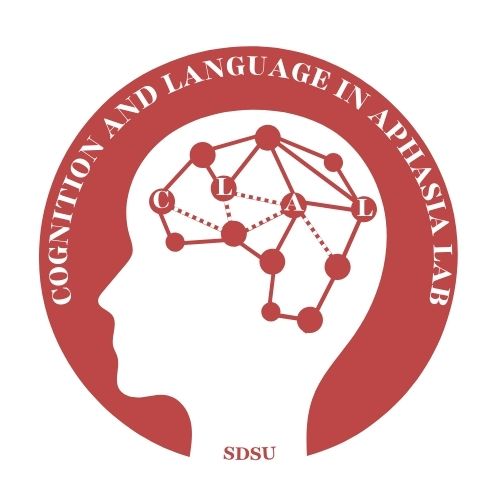What is Aphasia?
An acquired language disorder that usually occurs after a stroke to the left hemisphere of the brain. It impacts the ability to talk, write, read, and understand what you hear.
Why Should I Care About Aphasia?
Approximately 1,000,000 people in the U.S. live with aphasia, with an estimated 180,000 new cases occurring each year. Because aphasia influences all aspects of communication, it presents an immense burden to those living with it, and to their families.
What Does the CLAL Do?
We work to: 1) Understand the implicit processes that support language use and how they break down in aphasia; 2) Develop better ways to treat aphasia; and 3) Support the community of people living with aphasia.
What Do Research Assistants and Volunteers Do in the CLAL?
Volunteers in the CLAL may be involved in many ways that help meet the lab’s goals. This may include scoring language tests, transcribing language samples, doing literature searches, collecting data, developing experimental stimuli, or testing experimental protocols that are being created. It may also involve contacting people about participating in lab studies or working toward developing and distributing information about aphasia support resources. There may also be administrative work involved, just to keep the lab running smoothly. The exact tasks being completed will vary with the projects underway at any given time. There will also likely be opportunities to participate in lab meetings and journal clubs in which we read academic articles and discuss them. All lab members will complete training in the responsible conduct of human subjects research.
How Can I Get Involved in the CLAL?
The first step toward getting involved in the CLAL is to submit an application. This application is used to explore whether you may be a good match for the lab, in terms of your interests, your skills, and your availability.

